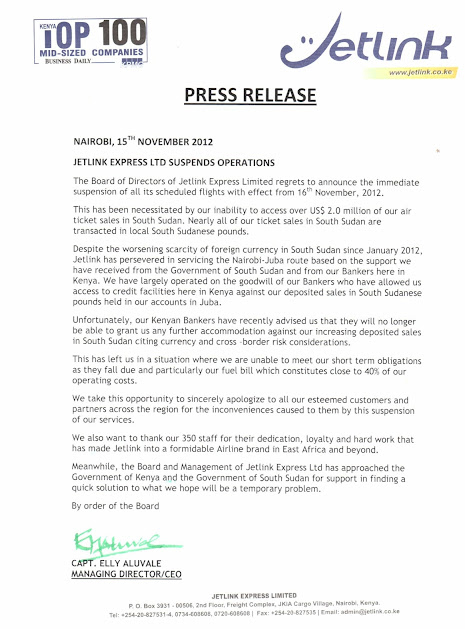One of the ways that South Sudan has managed to avoid currency depreciation after its collapse in oil revenues, has been to impose hard controls on access to foreign currency. Instead of rationing limited foreign currency through price (to the highest bidder) - rationing has been at the discretion of the authorities. As a result, Kenyan airline Jetlink hasn't been able to convert its South Sudanese Pounds into hard currency with which to buy fuel, and has just announced the suspension of all of its flights.
HT: @bankelele
HT: @bankelele

